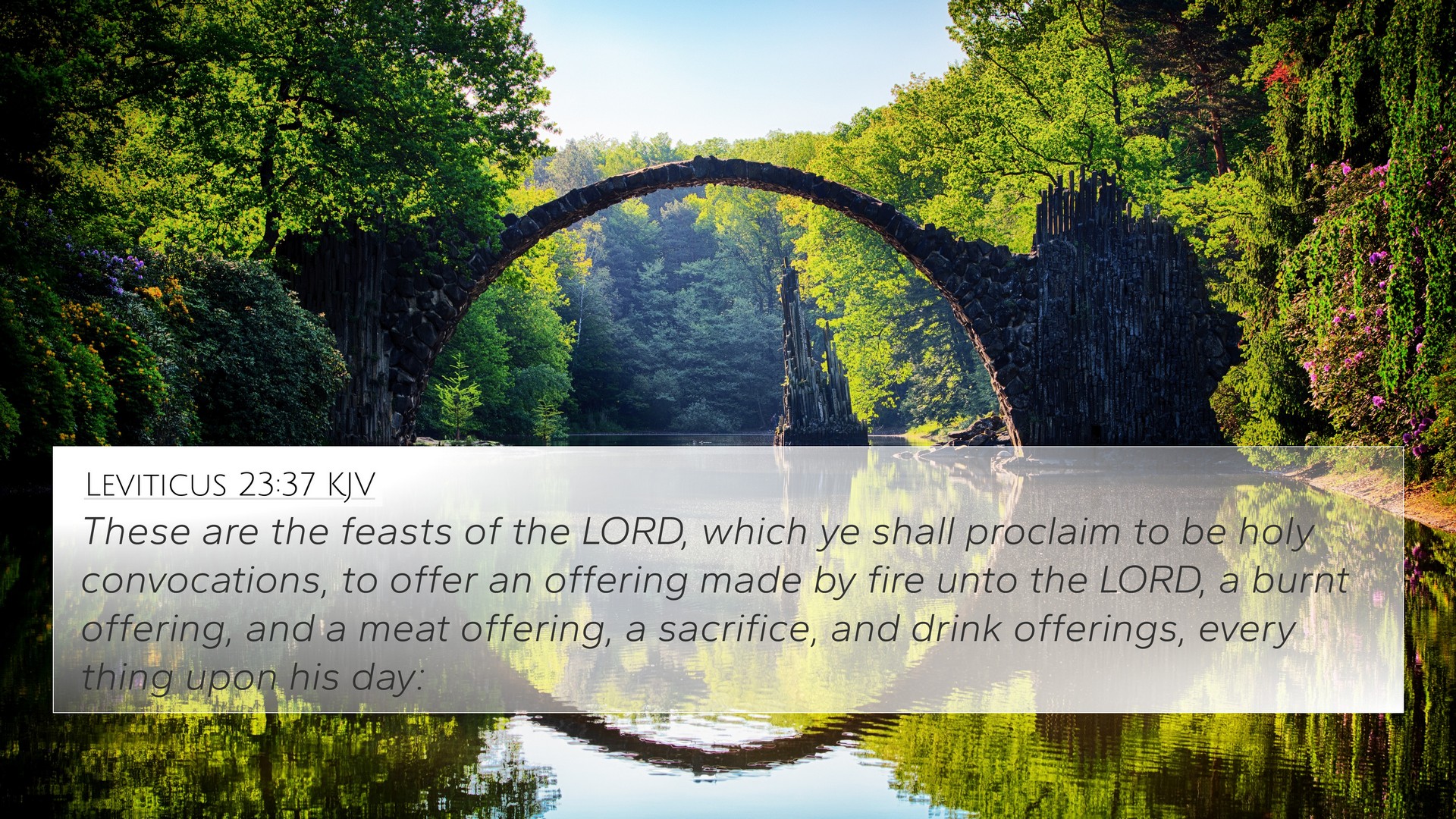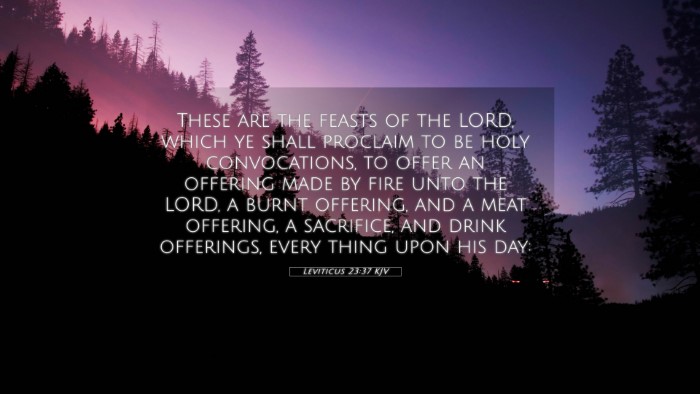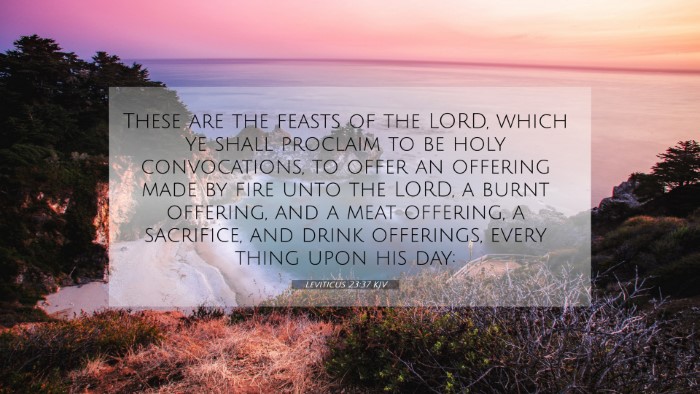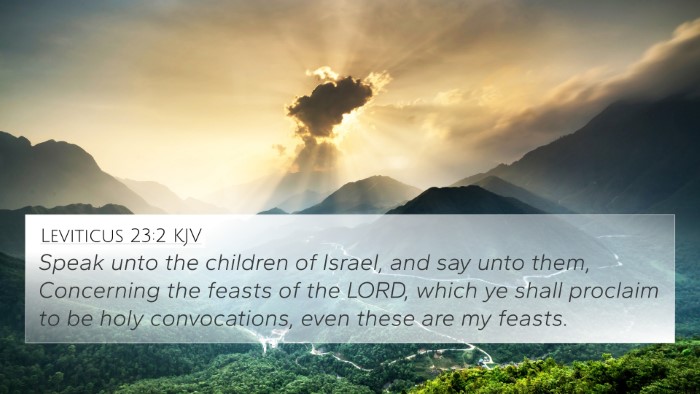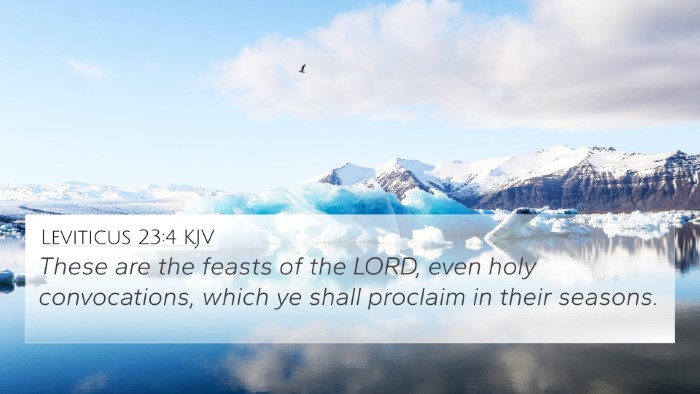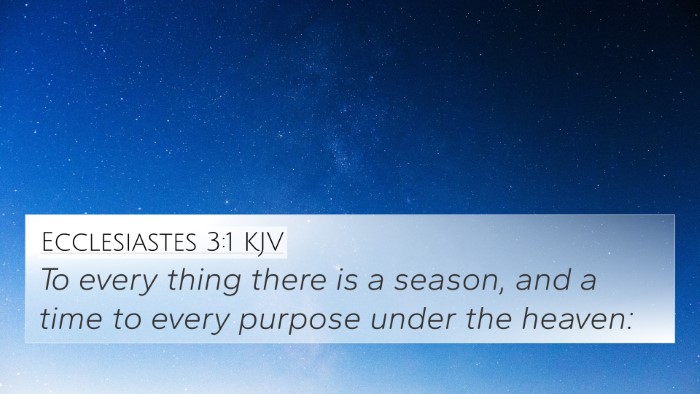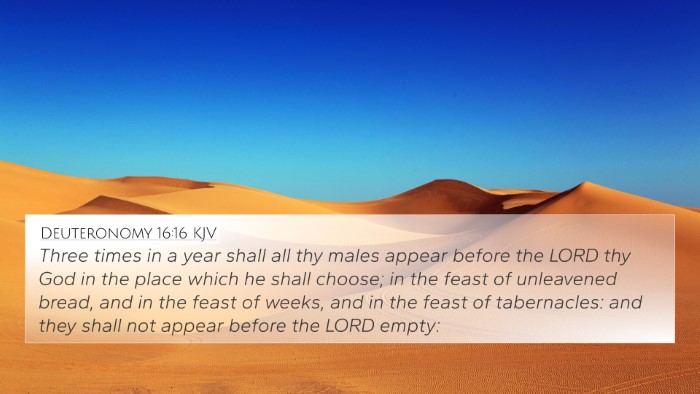Understanding Leviticus 23:37
Leviticus 23:37 states:
“These are the feasts of the LORD, which ye shall proclaim to be holy convocations, to offer an offering made by fire unto the LORD, a burnt offering, and a meat offering, a sacrifice, and drink offerings, everything upon his day.”
Summary and Interpretation
This verse encapsulates the divine order for Israel's sacred festivals, emphasizing the significance of these gatherings in their spiritual and communal life. The offerings mentioned serve as acts of devotion, symbolizing the people's gratitude and dedication to God.
Below, we explore three prominent commentaries to unveil deeper theological meanings and connections to other scriptures.
-
Matthew Henry's Commentary:
Henry elucidates that this verse serves as a reminder of the holiness of God's appointed times. These feasts were not merely cultural events but integral to Israel's identity as God's chosen people. He identifies that each feast had specific offerings, highlighting the combination of worship through both sacrifice and communal celebration.
-
Albert Barnes' Notes:
Barnes reflects on the necessity of these 'holy convocations' as times dedicated to worship and acknowledgment of God's sovereignty. He notes that these rituals were not optional; they were commanded by God, fostering unity among the Israelites and reinforcing their covenantal relationship with Him.
-
Adam Clarke's Commentary:
Clarke emphasizes the symbolic nature of the offerings, relating them to both Israel’s historical deliverance and the foreshadowing of Christ’s ultimate sacrifice. This view connects the Old Testament rituals with the New Testament understanding of salvation through Jesus, painting a picture of continuity and fulfillment in God's plan.
Bible Verse Cross-References
Leviticus 23:37 is interconnected with several other scriptures, which deepen the understanding of the themes presented. Below are notable cross-references:
- Exodus 23:14: “Three times thou shalt keep a feast unto me in the year.” This verse underscores the command for feasting as a means of honoring God.
- Deuteronomy 16:16: “Three times in a year shall all thy males appear before the Lord thy God in the place which he shall choose.” This reinforces the importance of communal worship.
- Leviticus 23:1-2: “And the LORD spake unto Moses, saying, Speak unto the children of Israel, and say unto them, Concerning the feasts of the LORD, which ye shall proclaim to be holy convocations...” This establishes the context for the feasts mentioned.
- Colossians 2:16-17: “Let no man therefore judge you in meat, or in drink, or in respect of an holyday, or of the new moon, or of the sabbath days.” This reflects the transition from Old Covenant to New Covenant practices.
- Hebrews 10:1: “For the law having a shadow of good things to come, and not the very image of the things...” emphasizing the foreshadowing nature of the Old Testament rituals.
- Romans 12:1: “I beseech you therefore, brethren, by the mercies of God, that ye present your bodies a living sacrifice, holy, acceptable unto God, which is your reasonable service.” This correlates the Old offerings with New Testament living sacrifices.
- 1 Corinthians 5:7-8: “For even Christ our passover is sacrificed for us: Therefore let us keep the feast...” Here, Paul connects the significance of the Passover lamb with Christ's sacrifice.
Thematic Connections
Leviticus 23:37 presents rich themes that resonate throughout Scripture:
- Worship and Sacrifice: The principle of offering to God is fundamental, seen from the Old Testament to the New Testament.
- Community and Fellowship: The gathering of people for worship reflects God's desire for community among believers.
- Celebration of God's Faithfulness: The festivals commemorate God's past provision and serve as anticipations of His future promises.
- The Nature of Holiness: The call to holiness in worship emphasizes the purity and reverence due to God.
- Typology of Christ: Biblical sacrifices foreshadow the ultimate sacrifice of Christ, establishing a continuity in God's redemptive plan.
Conclusion
In summary, Leviticus 23:37 not only outlines the requirements for sacrificial offerings during Israel's feasts but also establishes fundamental theological principles that cross-reference across both the Old and New Testaments. Utilizing tools for Bible cross-referencing can enhance understanding of these connections, making the study of scripture a deeply enriching experience.
As you delve into your study, consider how these themes and cross-references relate to your understanding of God's covenant with His people, both historically and spiritually.
